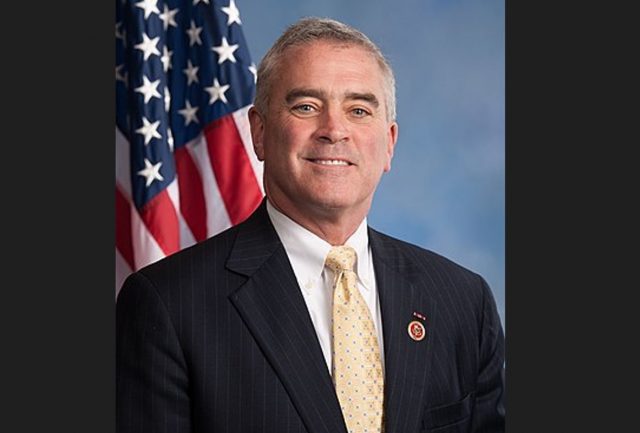
Washington, D.C. – Today, Rep. Brad Wenstrup (R-OH) and Rep. Abigail Spanberger (D-VA) introduced the bipartisan Initiating Imperative Reporting on Anomalous Health Incidents Act, or IIR on AHI Act. This bill directs the Secretary of Defense to provide the House and Senate Armed Services Committees a briefing on anomalous health incidents (AHI), also known as “Havana Syndrome.” They were joined by Rep. Rick Crawford (R-AR), Rep. Don Bacon (R-NE), and Rep. Trent Kelly (R-MS).
This legislation would require the Department of Defense (DOD) to share with the Committees information on confirmed or suspected cases of AHI affecting service members and civilian employees of DOD, how many people have been affected, the location of the incidents, and the timeframe when they occurred. This legislation would also require the DOD to provide an update on the strategy for protecting service members and civilian employees from the effects of AHI, as well as DOD’s current efforts to assist the Federal government in addressing, preventing, and responding to AHI.
“As a physician and retired Army Colonel who serves on the House Permanent Select Committee on Intelligence, I am deeply concerned by reports that DOD service members and civilians, diplomats, and intelligence officers around the world have experienced similar unexplained medical symptoms, also known as ‘Havana Syndrome,’ including dizziness, headache, fatigue, nausea, anxiety, cognitive difficulties, and memory loss. This legislation would provide Congress with critical information needed to support the health and well-being of the men and women who serve our country,” said Congressman Brad Wenstrup.
“I’ve spoken directly with public servants, including from Virginia, impacted by anomalous health incidents. These Americans include U.S. diplomats, servicemembers, intelligence officers, and civilian personnel,” said Congresswoman Abigail Spanberger. “As a former CIA case officer and member of the U.S. House Permanent Select Committee on Intelligence, I believe that lawmakers and the Pentagon must better understand the extent of these incidents and develop a strategy to address the issue. Our national security should never be a partisan issue, and I’m glad to join Congressman Wenstrup in working to protect our servicemembers.”
“It’s been nearly eight years since the first documented case of Havana Syndrome, but this mysterious illness is causing pain and confusion today. We cannot let these victims slip away forgotten, we need to have discussions with the Department of Defense about the proper response and ways to prevent more incidents,” said Congressman Rick Crawford.
“Usually where there is smoke, there is a fire and since 2016 we’ve seen too many documented cases of unexplained medical symptoms affecting our diplomats and intelligence officers stationed around the world,” said Congressman Don Bacon. “We need to hear from the Department of Defense about how many this has affected and what they are doing to treat and better protect our people stationed overseas.”
“The Initiating Imperative Reporting on Anomalous Health Incidents Act is a critical step towards understanding and addressing the mysterious afflictions known as Havana Syndrome that have impacted our servicemembers and intelligence community across the globe. I am proud to support this legislation, introduced by Rep. Brad Wenstrup, which mandates a comprehensive briefing to Congress on these incidents. This briefing will not only offer insight into the scale and severity of the health issues faced but also accelerate our efforts to protect those who serve our nation from such unexplained health incidents,” said Congressman Trent Kelly.
Background:
Anomalous health incidents (AHI) a.k.a. “Havana Syndrome,” are a set of unexplained medical symptoms first documented by U.S. State Department personnel stationed in Havana, Cuba in 2016.
Diplomats and intelligence personnel in Russia, Poland, Georgia, Serbia, Vietnam, India, Colombia, France, Switzerland, Taiwan and the U.S. have experienced these symptoms, according to reports. In some cases, diplomats and intelligence officers have left active service due to complications from the condition.
Although provisions in the FY22 and FY23 NDAAs included Department of State reporting requirements and required interagency coordination on AHI, no provision requires DOD to report to and brief Congress on these incidents.











